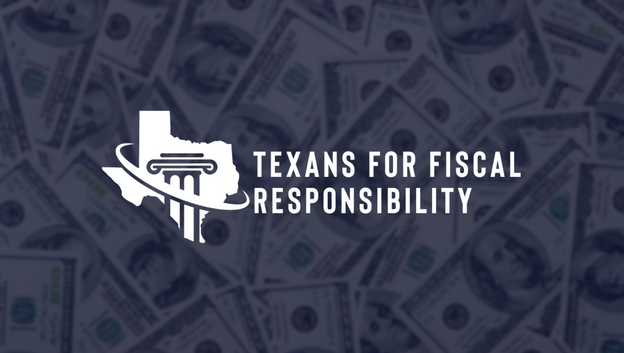
This week, the Senate Committee on Local Government met to deal with a list of issues and charges, some of which involved property taxes, taxpayer-funded lobbying, and appraisal reform. In many ways, this was the Senate version of the charges the House dealt with in its Appropriations and Ways and Means hearings last week. The hearings lasted all day long, but TFR was there to give a breakdown of issues that matter to our subscribers.
Day 1
On Tuesday, the first day of the hearing, the committee met to deal with four specific interim charges. These consisted of affordable housing, taxpayer-funded lobbying, extraterritorial jurisdictions, and special purpose districts.
Affordable Housing:
The focus of this charge was to discuss strategies to deal with affordable housing, homelessness, and methods to provide subsidized housing. As you can imagine, the discussion lacked many fiscally responsible solutions.
Instead, much of the testimony centered around lamenting that the government has not done enough and that some areas—like Austin—still have a major problem providing affordable housing altogether. Instead of speaking to the obvious, that government is incapable of helping to provide affordable housing, they offered a very typical “solution”: more government intervention.
Taxpayer-Funded Lobbying:
This subject received a great amount of time in the hearing. Many of the witnesses were local government officials advocating in favor of the need to hire lobbyists to accomplish policy goals they are perfectly capable of advocating for themselves.
Texans for Fiscal Responsibility (TFR) has made banning the practice of taxpayer-funded lobbying a part of our Texas Prosperity Plan. It has been a priority in two of the last three Texas Republican platforms and has passed a ballot initiative in the Republican primary with 95% support. Despite all of these facts, the Legislature has refused to end the corrupt practice.
State Sen. Paul Bettencourt (R-Houston), who authored the weaker version of the taxpayer-lobbying bill last legislative session (which only limited the practice rather than banning it), seemed to entertain the idea of letting local voters decide whether they allow the practice. The strongest testimony came from James Quintero, the policy director for the Government for the People Campaign at the Texas Public Policy Foundation (TPPF), who advocated against the practice when asked while also offering varying reforms. Highlights of his testimony can be viewed below:
Extraterritorial Jurisdictions:
The committee also met to study issues related to municipal extraterritorial jurisdictions and annexation powers, including examining possible disannexation authority. They are charged with determining whether extraterritorial jurisdictions continue to provide value to their residents and make recommendations on equitable methods for disannexation.
Special Purpose Districts:
The committee also studied methods to perform a comprehensive study on the powers and purposes of various special purpose districts and their associated legislative templates. They made recommendations to improve public transparency in the operations of special purpose districts and associated legislative templates.
Day 2
The entirety of the second day of testimony revolved around property taxes and the associated subjects listed below:
Property Tax Reform:
The goal of the charge was to review the effect of Senate Bill 2 (86th Legislature – 2019), the Texas Property Tax Reform and Transparency Act of 2019, and related legislation passed by the 87th Legislature (2021). The committee was charged with making recommendations for further property tax reform and relief. In many ways, this has been a flagship plank of TFR’s Texas Prosperity Plan, and we have spent a considerable amount of time talking about using projected surplus dollars to pay down the Maintenance & Operations (M&O) compression and put Texas on a path toward the overall elimination of property taxes.
Unfortunately, the vast majority of the time was spent praising the reform from 2019, and the only person to even mention the surplus and paying down compression rates was, yet again, James Quintero of Texas Public Policy Foundation.
TPPF has advocated for the elimination of M&O and moving the power to collect and distribute to the state. This is a reform that TFR supports, as well. The fact that no other testimony received at the hearing involved using the surplus to eliminate M&O shows where the Austin swamp is on the subject. The local officials and lobbyists who showed up to testify mainly focused on changes to the reform passed in 2019.
State Sen. Drew Springer (R-Muenster) also seemed very interested in taxing bottled water as an option for a consumption-based tax to help with property tax reform. We are not sure who put this idea in his head, but his talking point that we “tax ice, so maybe we should tax bottled water” is about the furthest thing from a conservative reform we could think of. For his sake, we hope he lets that idea die before the beginning of the next legislative session.
Appraisal Reform:
Appraisal reform, which has been a lingering plank in the Republican Party platform for years, got some attention in this round of hearings. There were a number of suggestions on how to make the appraisal process more transparent and easier for taxpayers.
In the middle of the testimony, Springer suggested multiple times that a major problem in efficiency was that people don’t show up to protest hearings themselves. His solution? Charge them fees! That’s right; he really suggested that if taxpayers were charged fees for the privilege of protesting their inflated property tax appraisals, it would make them more serious about it and help make the system more efficient. It seems to TFR that Springer, who scored an 84 in his first session in the Senate Fiscal Index, might be reverting back to his old ways (mostly failing grades in the Texas House of Representatives).
This is simply a tone-deaf reform that even some of the witnesses conceded was a bad idea. We hope Springer forgets about this one before the next legislative session.
Efficiency Audits:
The last charge to be discussed was the concept of efficiency audits for cities, counties, and special purpose districts and under which circumstances they should be performed. The committee was charged with evaluating whether efficiency audits provide Texans with tools to combat wasteful government spending and to report whether they are needed before local government tax ratification elections.
TFR views audits, if done properly, as a great reform until we can eliminate the appraisal system completely. One of the best suggestions in the short term was for any local government that does not adopt the no-new-revenue tax rate to be immediately subject to an efficiency audit. TFR supports this idea and hopes to see it filed in the next legislative session.
Now What?
TFR will continue to pay close attention to what happens in the remainder of the interim and how state lawmakers plan to spend your tax dollars in the next legislative session. We hope to provide our subscribers with transparency and understandable summaries of what is occurring in the Austin swamp.
How can you do more?
The next legislative session is set to begin in January of 2023. Your elected officials need to hear from you.
You can subscribe to The Fiscal Note and stay up to date on all fiscal issues that affect Texans, especially our broken property tax system. We CAN put Texas on a path to fiscal sanity and future prosperity if we amplify our voices loudly enough.




